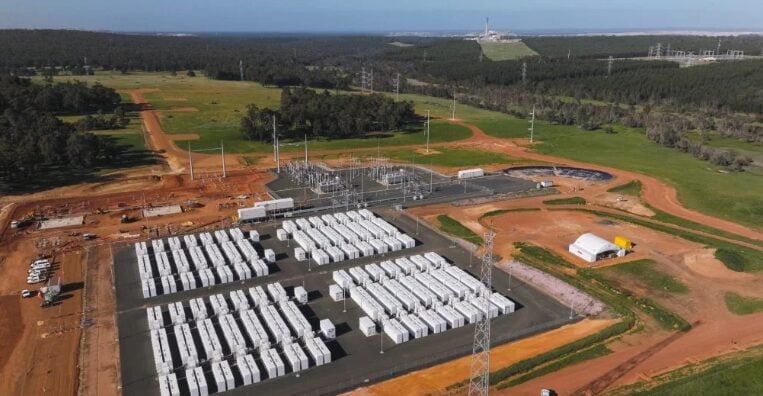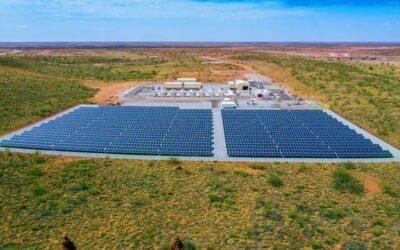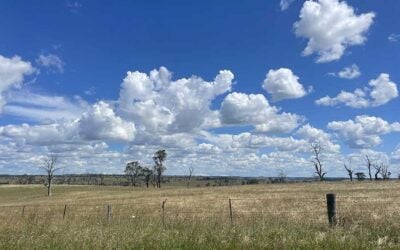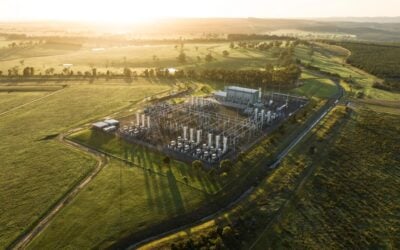
Tesla has inked a memorandum of understanding (MoU) with the Western Australian government to develop a battery re-manufacturing facility in Collie, home of Neoen’s 2.2GWh battery energy storage system (BESS).
The Texas, US-headquartered electric vehicle (EV) storage and solar manufacturer said the service facility is expected to become operational by 2026 and will initially service a range of battery products in Western Australia and the wider Asia-Pacific region.
Enjoy 12 months of exclusive analysis
- Regular insight and analysis of the industry’s biggest developments
- In-depth interviews with the industry’s leading figures
- Annual digital subscription to the PV Tech Power journal
- Discounts on Solar Media’s portfolio of events, in-person and virtual
Products set to benefit from this plant include Tesla’s Megapack technology, an integrated solution that includes lithium-ion batteries, a power conversion system (PCS), thermal management, and controls. This solution is being used in both stages of French independent power producer (IPP) Neoen’s 560MW/2,240MWh Collie BESS, which is being developed in two phases.
The Collie BESS will be connected to the South-West Interconnected System (SWIS) grid in Western Australia. Neoen, set to be acquired by Canadian asset manager Brookfield, has approval to scale the Collie Battery to a 1GW/4GWh system.
Tesla’s regional director of energy, Josef Tadich, stated that the facility will allow the company to repair and maintain its utility-scale Megapack and residential Powerwall battery systems locally.
“Providing faster support for local customers while reducing logistical costs and emissions,” Tadich said.
Western Australia’s minister for energy, environment and climate action, Reece Whitby, took to LinkedIn to describe the deal as a “huge vote of confidence in Western Australia Labor’s energy transition progress” ahead of the state election next month.
“A very big announcement with our Western Australia Labor government securing Tesla’s biggest Australian facility, being built right here in Western Australia,” Whitby said. “Collie – already home to Australia’s biggest batteries – will now be home to a Tesla remanufacturing plant to service, repair and renew Tesla batteries.”
It is worth noting that Labor and the centre-right Western Australian Nationals Party have made various pledges for the upcoming state election. For instance, Western Australia’s Premier Roger Cook of the Labor Party recently pledged to invest AU$150 million (US$92.4 million) into a 500MWh 10-hour duration vanadium battery should it be re-elected in the upcoming state election.
On the other hand, the Nationals outlined its intention last month to implement a comprehensive State Planning Policy for renewable energy projects should it win the upcoming state election, as reported by our sister site PV Tech. The party’s leader, Shane Love MLA, said the policy would establish a clear, consistent framework for large-scale renewable energy projects and address significant gaps in the current planning system.
Tesla full-year deployment figures rise by 244% year-on-year
Globally, Tesla posted strong deployment figures for its energy storage technology with Energy-Storage.news having reported in late January that it had deployed 31.4GWh throughout the year, with 11GWh in the final quarter.
This reflects a 244% year-on-year growth on a quarterly basis, increasing from 3.2GWh deployed in Q4 2023. For the full year, there was a 114% year-on-year growth, rising from 14.7GWh deployed in 2023, which saw Tesla surpass its previous yearly record by more than doubling deployments from 2022’s figure of 6.5GWh.
In Australia, Tesla’s Megapack solution is being used across numerous utility-scale sites. For instance, state-owned generation company CS Energy is using Tesla Megapack 2XL units for its 200MW/400MWh Greenbank BESS in Logan, Queensland.
Construction on the AU$300 million BESS started in late 2023 and is anticipated to be completed and operational in 2025. It will stabilise the National Electricity Market (NEM) by dispatching stored energy when peak demand kicks in.
This technology also featured in CS Energy’s first BESS project, the 100MW/200MWh Chinchilla site, which went into operation in August 2024.






